Volume 2, Issue 4 | April 2025
Updates from Climate and Equity Fellows

From Claudia Bouchard (’23)
I attended the Youth Climate Summit at the Mashantucket Science Center in CT at the end of February. My district sent students from the Environmental Science (AP class), Environmental Club and the National Science Honor Society. It was rewarding to see and hear young adults being passionate about the environment. I am glad I was able to attend and learn new strategies and knowledge that I can bring back to my classroom.
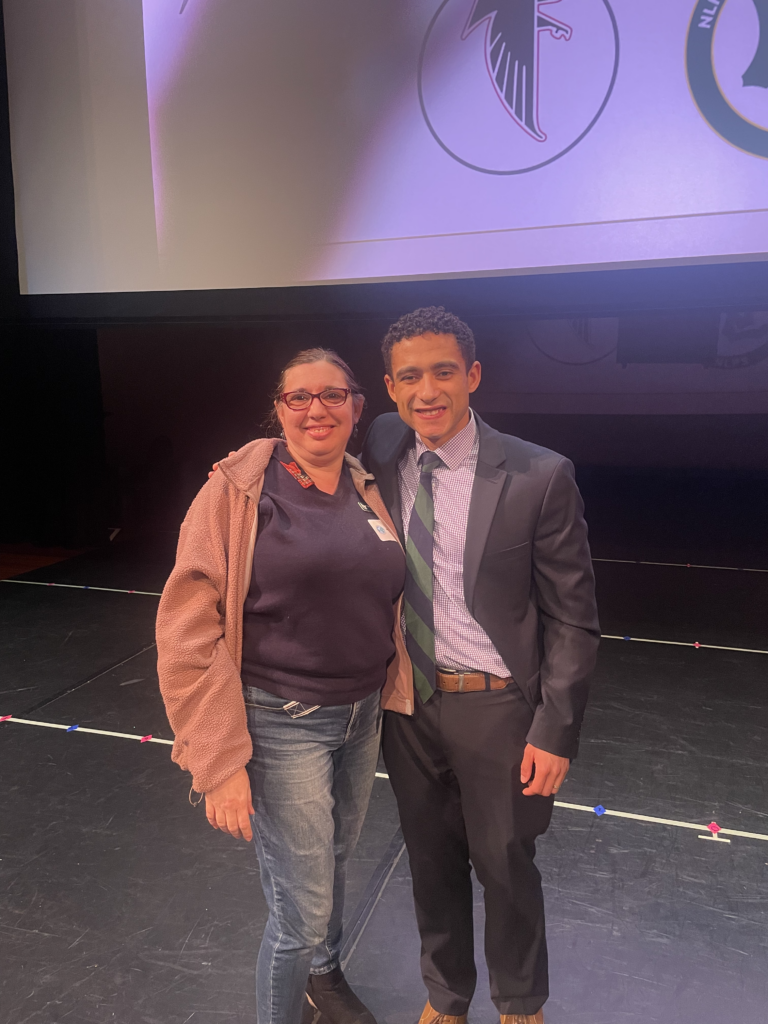
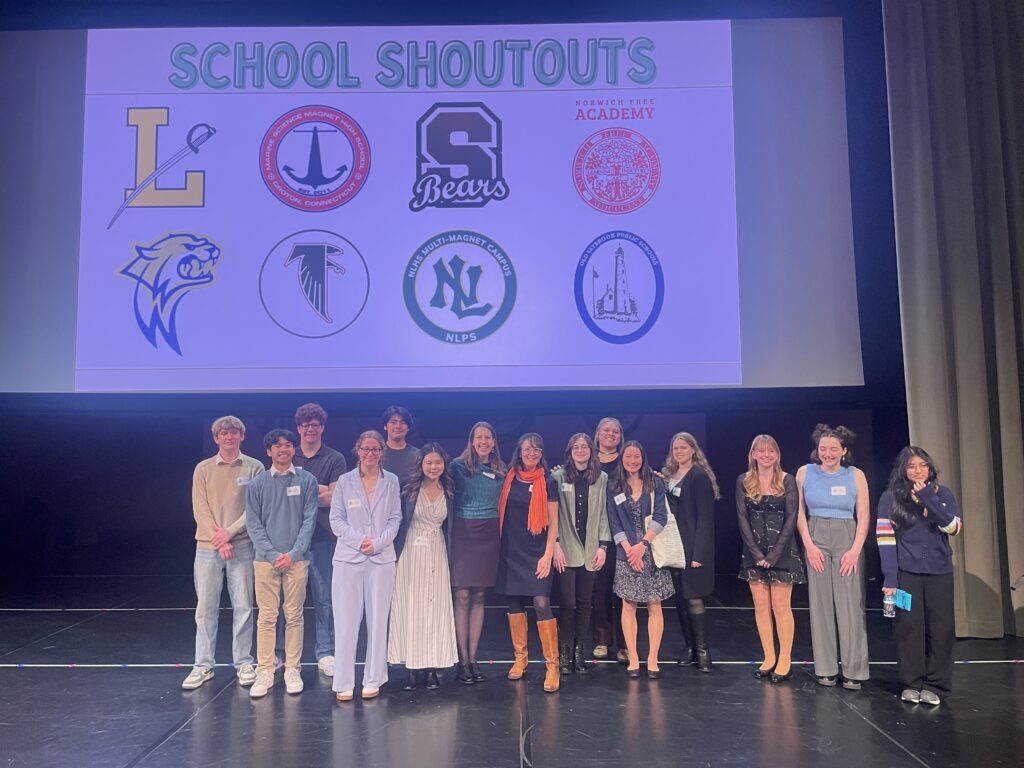
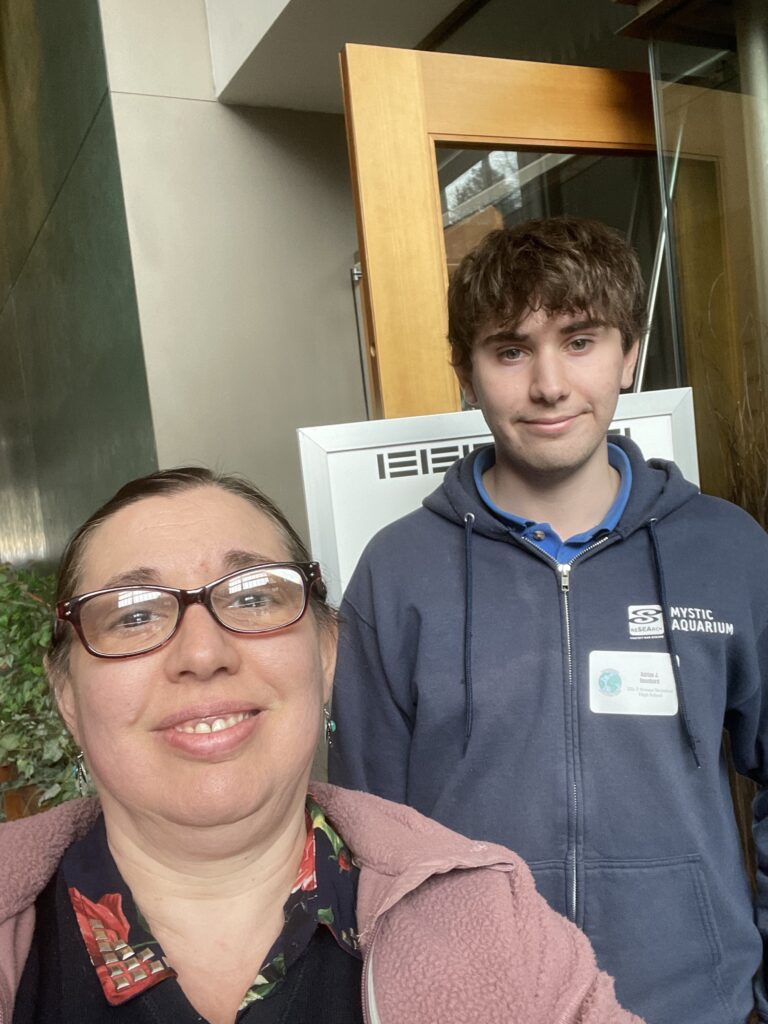

From Alejandro Mundo (’23) and Kelli Grabowski (’23)
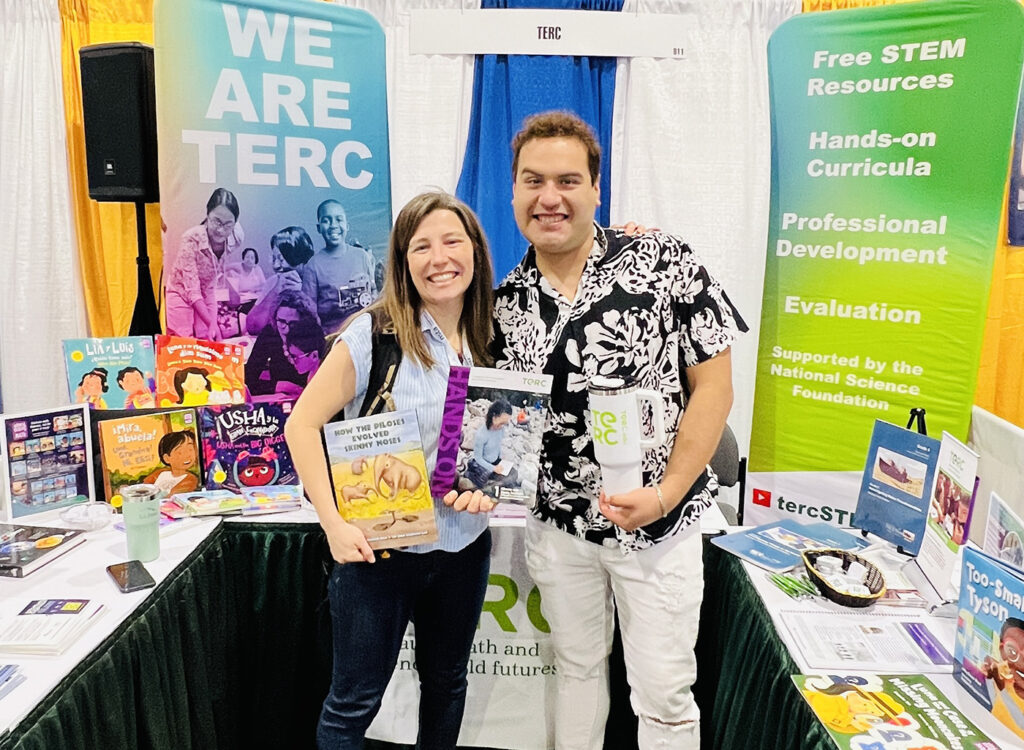
Alejandro and Kelli were present at the NSTA meeting in Philadelphia, where they participated in workshops, panels, and working groups, especially those focused on climate change education. They also stopped by the TERC table and shared their experiences, highlighting how the Climate Equity Institute has been a great benefit to the students in their classrooms and school communities, and sharing this impact with others.

From Molly German (’24)
For those who don’t know me, I was in the 2024 cohort and I teach chemistry, physics and physical science in rural northern California. I’m trying to plan a unit for my chemistry class and I thought there must be some folks here with resources.
I want to do something around the ethics of science, with the starting point of Fritz Haber, but branching out into fertilizer, nitrogen cycle, extractive mindsets and the need for fertilizer in the first place, Indigenous science & land management (and more?). Maybe different options for different students to explore based on interest. A related chemistry lab/exploration or two would be cool too.
If anyone has ideas, or wants to collaborate with me on planning something, let me know!
Responses to Molly
Oisin Gunning (’24): I have three recommendations that have helped shape my thinking about the nitrogen cycle specifically:
- “When We Cease To Understand The World” by Benjamín Labatut has a fantastic throughline about Haber and the ethics questions surrounding his life, as well as other major scientific minds of the mid-1900s.
- Daniel Immerwahr’s “How To Hide An Empire” has a short chapter on the Guano Islands Act (which allowed the US to unilaterally claim any guano-caked islands for the purposes of mining nitrogen fertilizer), tying together the natural cycles of agriculture and the political aims of imperialism.
- I recently read Kohei Saito’s “Slow Down”, which deals in a large part with Marx’s concept of a “metabolic rift”, specifically with regards to nitrogen depletion and extraction. This article has a pretty good summary of the metabolic rift as a concept. (I particularly like this quote about the Haber-Bosch process: “the metabolic rift in the nitrogen cycle is not resolved but displaced onto the carbon cycle.”)
Claire Monk (’24):
I found this nitrogen cycle game that could be adapted for chemistry. I would say integrating conversations about fertilizer runoff, watersheds and “dead zones” would be especially pertinent in California. The California Nitrogen Assessment looks like it would be a great resource.
Erika Riddington (’24)
Great idea for a class! I’m interested to hear how it develops. I don’t have much useful to offer for your purposes, as I have relied on diagrams and short videos to cover the nitrogen cycle. (I would do well to up my game on that front for my Citizen Food class.) I’ll keep my eyes open and be in touch if I think of anything.
Announcing the 2025 Fellows
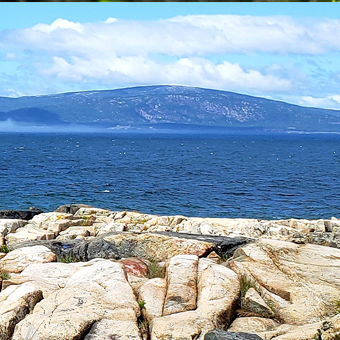
We have a wonderful cohort of 12 teachers who will be attending the Climate and Equity Institute this summer. They teach in public schools in rural, suburban and urban contexts in 8 different states. Their experience teaching about climate change and equity ranges from 4 – 20 years. We are thrilled to welcome them to this community!
Resources

From From the USA National Phenology Network:
- Phenophase Primer for Flowering Plants: Understanding Plant Phenophases for Nature’s Notebook.
- Theresa Crimmins (USA NPN director) has just published a book simply titled Phenology. It is available now on Amazon, Barnes and Noble, Books a Million, and more. Use code READMIT20 for 20% off orders through Penguin Random House with a US mailing address. “This basic primer on the topic of phenology provides a thorough summary of what phenology is, how it is changing, and why we should care. Her hope is that it will be a helpful resource for local phenology programs, students and educators, and anyone interested in gaining a deeper understanding of the topic.
Climate Trace:
Al Gore’s Climate Trace has gone live, bringing climate data and powerful visualizations for public and educational use. See the Forbes story and the Climate Trace website.
Now’s your chance! Deadline for next newsletter
Send us your ideas, your news items, or resource reviews by May 23rd for next month’s newsletter
Call-backs: Feel free to suggest topics for future call back sessions
Contact Brian at climateandequity@terc.edu with ideas and proposals!
The Climate and Equity project is funded by the John D. and Catherine T. MacArthur Foundation.
